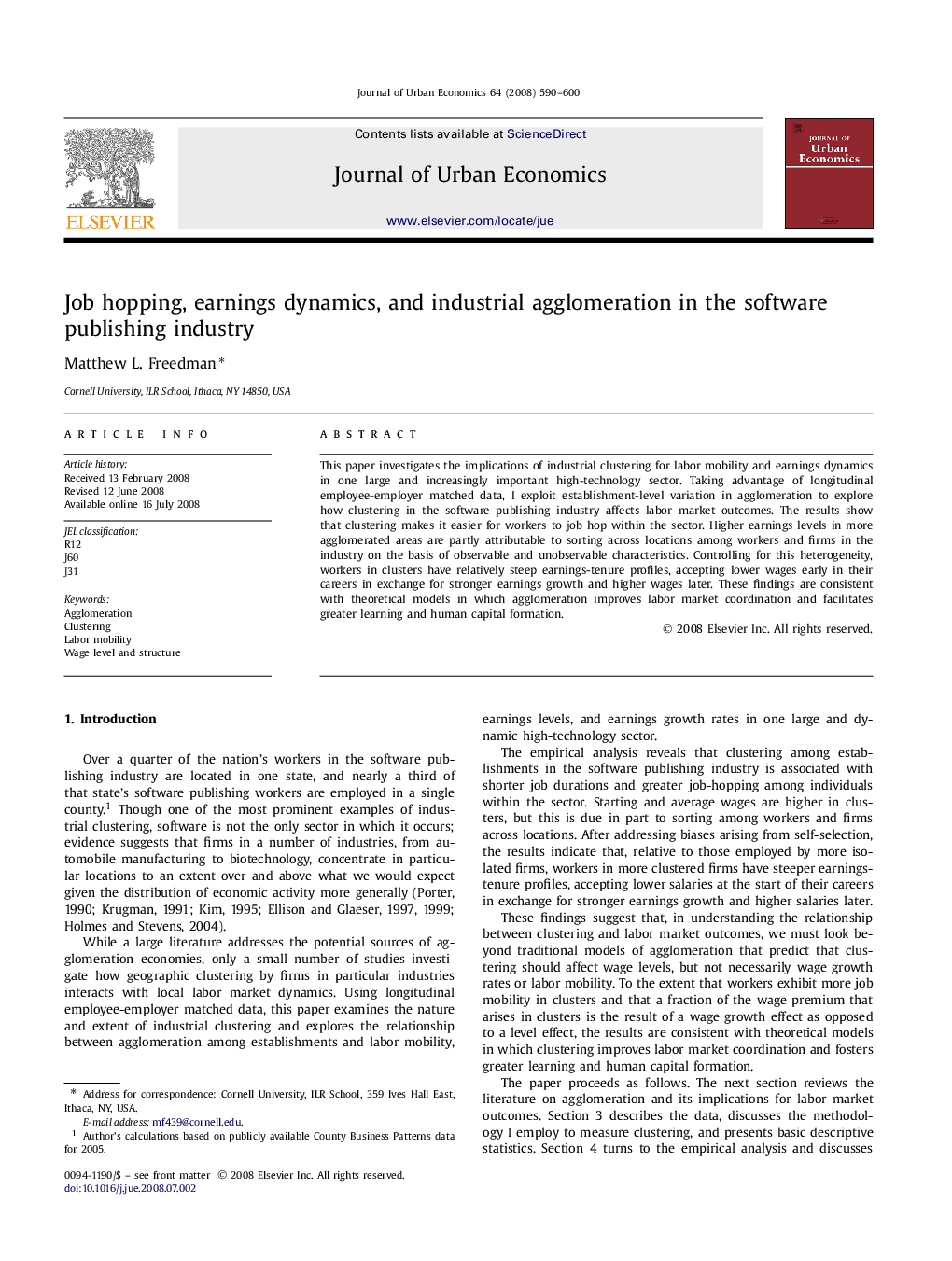| Article ID | Journal | Published Year | Pages | File Type |
|---|---|---|---|---|
| 971989 | Journal of Urban Economics | 2008 | 11 Pages |
This paper investigates the implications of industrial clustering for labor mobility and earnings dynamics in one large and increasingly important high-technology sector. Taking advantage of longitudinal employee-employer matched data, I exploit establishment-level variation in agglomeration to explore how clustering in the software publishing industry affects labor market outcomes. The results show that clustering makes it easier for workers to job hop within the sector. Higher earnings levels in more agglomerated areas are partly attributable to sorting across locations among workers and firms in the industry on the basis of observable and unobservable characteristics. Controlling for this heterogeneity, workers in clusters have relatively steep earnings-tenure profiles, accepting lower wages early in their careers in exchange for stronger earnings growth and higher wages later. These findings are consistent with theoretical models in which agglomeration improves labor market coordination and facilitates greater learning and human capital formation.
